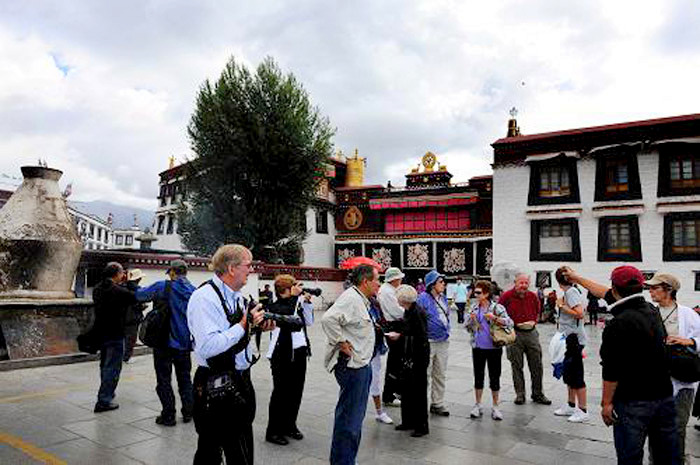 Dharamsala: On 6th June, Chinese travel agencies announced that foreign travelers are no longer allowed to visit Tibet. This ban is Beijing's response to the recent self immolations in the region. Major travel agencies said they were told by Tibetan tourism authorities in late May that travellers from other countries would not be allowed into the region and said they had no idea how long the ban would last.
Dharamsala: On 6th June, Chinese travel agencies announced that foreign travelers are no longer allowed to visit Tibet. This ban is Beijing's response to the recent self immolations in the region. Major travel agencies said they were told by Tibetan tourism authorities in late May that travellers from other countries would not be allowed into the region and said they had no idea how long the ban would last.
The ban precedes the peak season for travel to the troubled region - the month-long Saga Dawa festival began on Monday. The festival which began on June 4th 2012 ( a date that coincided with the anniversary of the 1989 Tiananmen Square Protests), usually attracts hundreds of Buddhist tourists from all over the world to celebrate the festival.
"It was halted in late May. People said it was because of the... festival," an employee at the Tibet China Travel Service was reported saying by AFP. Another agent from the Tibet China Youth Tour Service was reported saying that the ban might also be linked to the "recent social order problem".
Even in normal times, overseas tourists need special permits to travel to the remote region as well as their visas for China, and have to travel in tour groups. Even when foreigners are permitted into Tibet, tours are closely monitored, travellers must apply for a special visa and they will be accompanied by a government-appointed guide. All foreign tour operators must make their arrangements through Chinese firms only.
China has banned foreign tourists from visiting the so called Tibet Automonous Region (TAR) before, usually during periods of unrest and during religious festivals. Overseas tourists were prevented from travelling to the region in 2008, following violent protests in Tibet's capital Lhasa, before the ban was lifted ahead of the Beijing Olympics. While region has been to closed to foreign visitors in the past, doing so during peak tourist season is not common as the Tibetan economy relies heavily on tourism.
The "recent social order problem" could be a reference to the protests and self immolations that have recently taken place leaving Lhasa under a heavy security lockdown imposed by the Chinese Government.
On May 27, two Tibetan men set themselves alight in front of the Jokhang temple in the centre of Lhasa. On the 30th of May, a young mother of three also set herself on fire in front of the Zamthang Monastery, Ngaba County. The Chinese government had retaliated by detaining hundreds of people- especially from the Ngaba region- monitoring the internet cafés and phone booths and had even checking the mobile phones and cameras of everyone who had witnessed the immolations on the 27th.


![Tibet has a rich history as a sovereign nation until the 1950s when it was invaded by China. [Photo: File]](/images/stories/Pics-2024/March/Tibet-Nation-1940s.jpg#joomlaImage://local-images/stories/Pics-2024/March/Tibet-Nation-1940s.jpg?width=1489&height=878)















